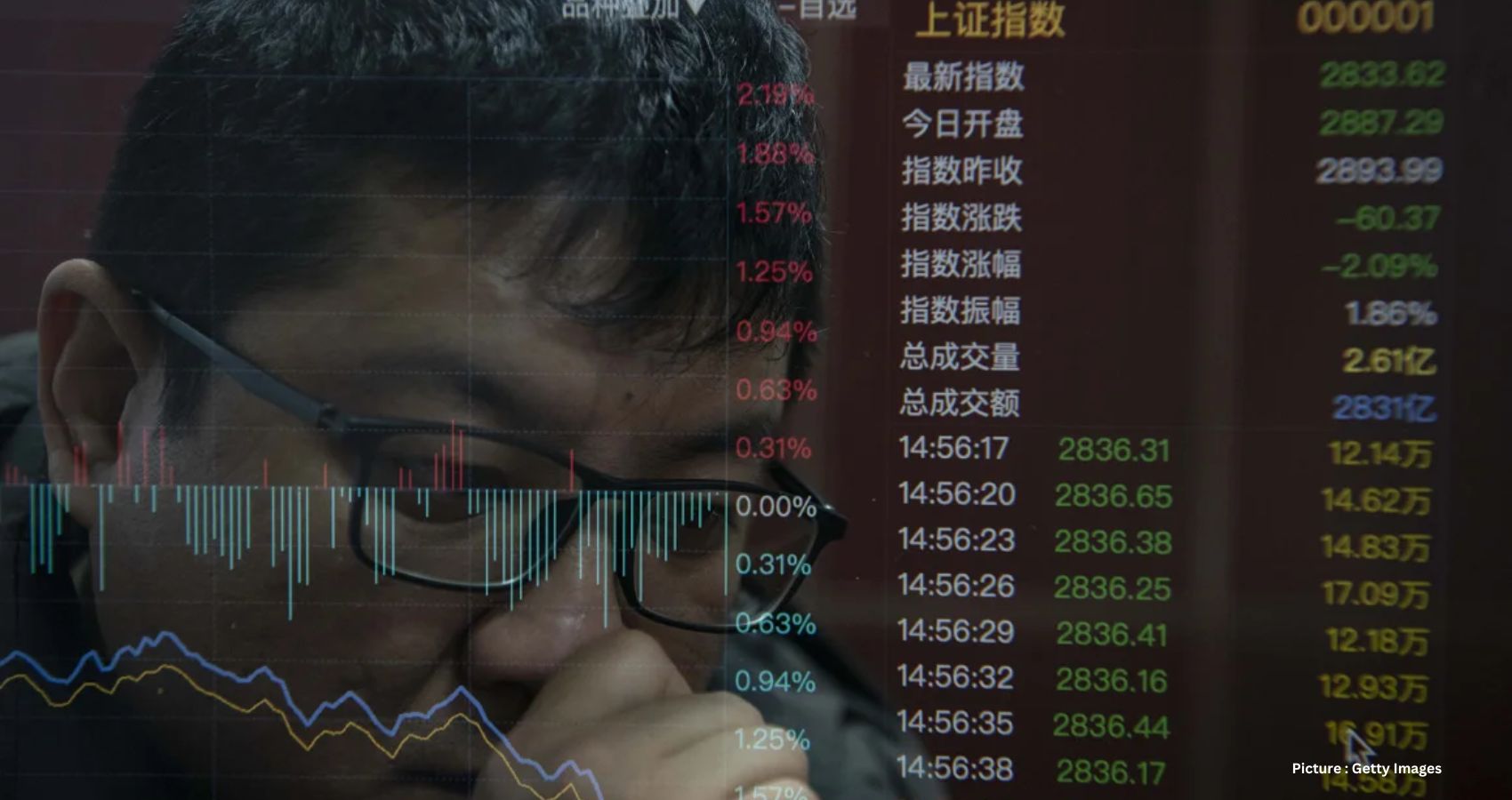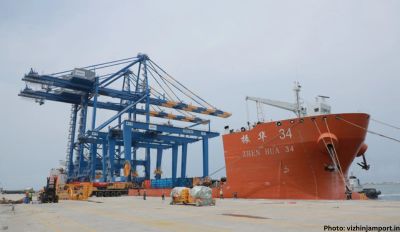Chinese stocks have experienced a challenging start to 2024, extending the rough period that began in February 2021, marked by a steady decline since their most recent peak. Over the past three years, approximately $6 trillion, roughly twice the annual economic output of Britain, has been wiped off the value of Chinese and Hong Kong stocks.
The Hang Seng index has plummeted by 10% in the current year alone, accompanied by declines of 7% and 10% in the Shanghai Composite and Shenzhen Component indexes, respectively. These staggering losses, reminiscent of the 2015-2016 Chinese stock market crash, underscore a crisis of confidence among investors who harbor concerns about the country’s future.
Goldman Sachs analysts expressed the challenges faced by investors in Chinese equities over the past three years, stating, “China … [is] currently trading at suppressed valuations and decade-low allocations across [investment] fund mandates.”
China’s economic landscape is marred by a myriad of problems, including a record downturn in real estate, deflation, escalating debt, a declining birthrate, a shrinking workforce, and a shift towards ideology-driven policies that have unsettled the private sector and deterred foreign firms.
Amid a global stock market rally led by Wall Street and Japan, Chinese markets have emerged as the worst performers in 2024, prompting concerns from the Chinese government. Reports suggest that Beijing has taken measures such as requesting banks to sell dollars to support the yuan and preparing for direct intervention to stabilize stocks. Chinese Premier Li Qiang has ordered officials to implement “forceful and effective measures” to stabilize the markets, raising questions about the restoration of investor confidence.
Investors’ apprehensions stem from the perceived lack of effective policies from Beijing to stimulate a sustainable economic recovery. China’s economy, which grew at 5.2% in 2023, experienced its slowest pace of expansion since 1990, with expectations of further slowdown to around 4.5% this year and dropping below 4% in the medium term. This deceleration, considered structural and challenging to reverse, raises concerns about potential decades of stagnation.
Nomura analysts highlighted the confusion surrounding Beijing’s economic policy stance, citing the central bank’s failure to cut its benchmark lending rates and officials’ reluctance to pursue short-term growth at the expense of long-term risks.
The People’s Bank of China’s decision to maintain its medium-term lending facility rate and Loan Prime Rate, contrary to market expectations, has further dampened hopes for a policy shift. Goldman Sachs analysts assert that conventional macro policy easing has fallen short, advocating for a more aggressive, big-bang approach to overturn the negative market narrative.
The real estate crisis, a central driver of China’s economic challenges, necessitates an “effective government backstop” to support failing property developers and stimulate housing demand, according to Goldman Sachs analysts. Additionally, concerns about China’s commitment to reform have intensified due to the crackdown on Big Tech, emphasis on national security, and the increasing dominance of the state sector in key industries, all of which have discouraged investment.
US-China tensions have further prompted US investors to significantly reduce their exposures to and ownership of Chinese equities, contributing to the ongoing market downturn.
In response to the stock market crash, Premier Li has pledged to take action to boost the stock market and improve liquidity. However, the specifics of these measures remain undisclosed. State-owned banks have reportedly supported the Chinese yuan to prevent rapid depreciation, while authorities are considering a direct intervention by mobilizing a stock market stabilization fund of 2 trillion yuan ($282 billion). The fund would purchase mainland China-listed shares through the Hong Kong stock exchange, with an additional 300 billion yuan ($42 billion) earmarked for local funds to invest in mainland Chinese shares.
The Tuesday Bloomberg report suggesting these potential interventions temporarily halted further declines, with the Hang Seng index closing 2.6% higher and the Shanghai Composite up 0.5%.
The stock market rout has triggered public anger on Chinese social media, where over 220 million individuals, accounting for 99% of the total investor base, are invested in China’s stock markets. Topics related to the “market plunge” and “China’s stock market rescue” were trending on Weibo on Tuesday, even prompting influential figures to call on regulators to take effective measures to stem the decline.
Former editor-in-chief for the state newspaper Global Times, Hu Xijin, expressed concern about the continuous decline in the stock market, emphasizing its impact beyond the capital market. He urged Beijing to take immediate action to rescue small investors, citing a personal loss of more than 70,000 yuan ($9,857) since he began investing in the stock market last June.











